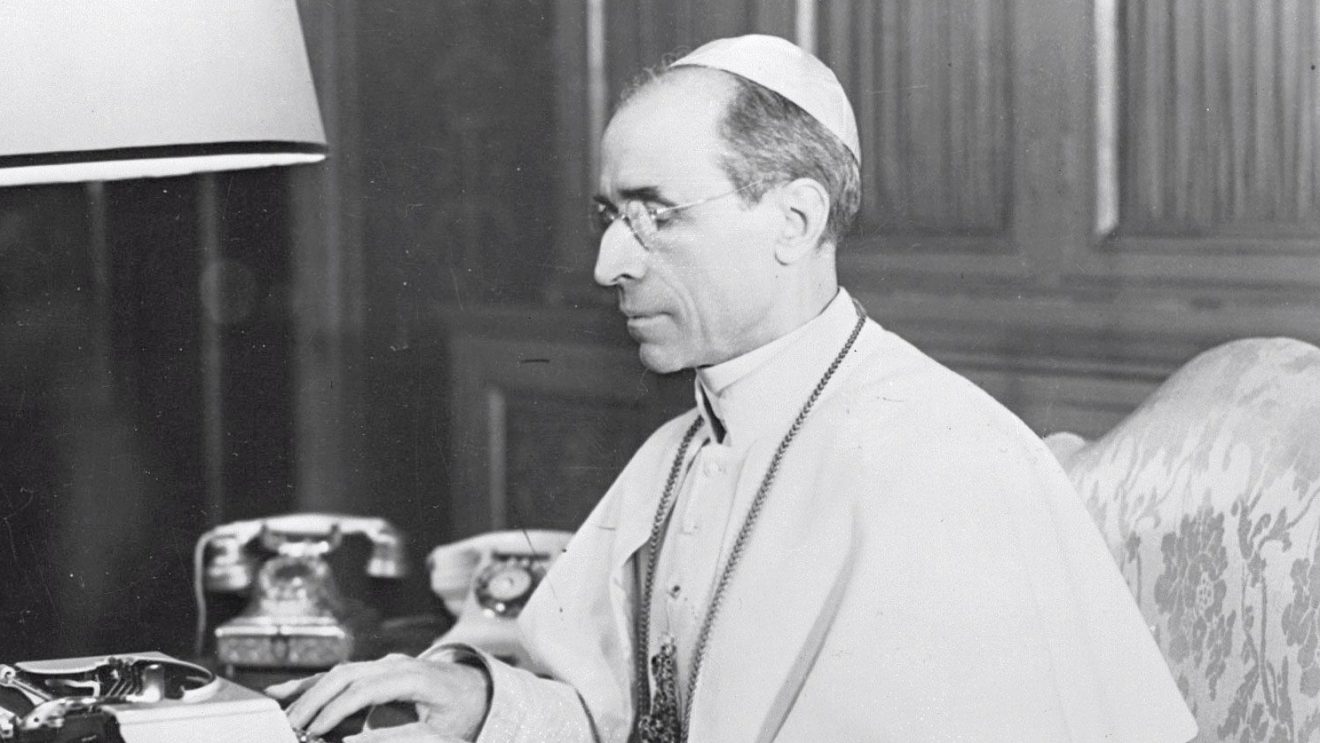The left has effectively seized upon the language of human rights to make fundamental cultural and social changes in the United States. In doing so, the left is winning the war of words in the general public, especially among the youth, and moving their destructive agenda forward. The irony is that human rights are deeply rooted in a Christian tradition, one that was revived in the 1930s and 1940s by Catholic theologians who were joined by American Protestant theologians and European politicians in their confrontations with fascism and communism. Ronald Reagan in the 1980s again drew on the Christian human rights tradition in confronting the Soviet Union’s suppression of religious and political liberty.
It is time for Christians to reclaim the language and substance of human rights.
The Left’s Hypocritical Rights Crusade
No better example of the left’s exploitation of human rights is the call for economic boycotts against North Carolina and Mississippi for legislation that allegedly discriminates against homosexuals or transgendered persons. In March, North Carolina enacted the Public Facilities Privacy and Security Act, which requires government buildings and public universities to designate restrooms to be used by people whose biological sex at birth matches the sign on the door. Activists claim that this law discriminates against transgendered people. Mississippi enacted a religious freedom bill that prohibits state government from punishing people who refuse to provide services because of a religious opposition to same-sex marriage, extramarital sex or transgendered persons. Similar religious liberty bills are pending in other states, including Missouri. The left sees such bills as violations of human rights because the bills allegedly discriminate against the lesbian, gay, bisexual and transgender (LGBT) community.
Responding to the criticism, the governors of New York and Massachusetts have banned their state employees from traveling to North Carolina and Mississippi. New York Mayor Bill DeBlasio, never one to let a leftist cause go unsupported, joined in this boycott. Rock singers Bruce Springsteen and Bryan Adams, both long-time leftwing cultural warriors, canceled concerts in the offending states. Adding economic weight to the boycott, major corporations including Apple, PayPal, Salesforce and others have threatened legislators and the governors in Mississippi and North Carolina with similar boycotts and business relocation if these states do not mend their ways.
At issue is whether state governments have the right to protect the religious liberty and privacy of their citizens without the approval of self-righteous corporate executives and left-wing activists. Mississippi passed a narrow and carefully constructed law that protects the religious rights of religious charities, small businesses and specific public servants. The North Carolina law provides for the protection and safety of its citizens by mandating gender-specific public restrooms, and allows private businesses to set their own bathroom policies, overturning a Charlotte city ordinance requiring private businesses to allow men to use women’s restrooms and locker rooms.
How can legislation to protect religious liberty of citizens and privacy in public restrooms constitute a violation of human rights, or for that matter, a violation of civil liberties? The first Congress of the United States wrote the First Amendment to the U.S. Constitution because religious liberty was fundamental to political liberty. Mississippi seeks to protect the rights of bakers, florists, photographers, adoption agencies and marriage counselors to follow their religious conscience. North Carolina is supporting the right of parents to protect their children in public restrooms.
Heritage Foundation scholar Ryan T. Anderson astutely observes the appalling hypocrisy of these corporations, left-wing politicians and rock musicians. If human rights are a matter of principle, he asks, “why do many of these same companies do business in foreign countries with terrible records on human rights in general and for LGBT people in particular?” He raises an excellent question about why PayPal’s international headquarters are located in Singapore, a country which can punish people engaged in consensual homosexual acts with up to two years of prison. If PayPal corporate management is so adamant in its defense of human rights—as defined through the LGBT community (as if there were actually one such community)—they should relocate their business out of Singapore. In 2012, PayPal announced it was opening offices in the United Arab Emirates (UAE), a country well known for its repression of homosexuals. Instead of consistency, PayPal executives sanctimoniously declared that the company won’t expand in North Carolina because of the company’s “deepest values and our strong beliefs that every person has the right to be treated equally, and with dignity and respect.” Obviously, these “deep” values run only so deep.
Consistency is not a hobgoblin for New York Governor Andrew Cuomo or New York City Mayor Bill DeBlasio. Governor Cuomo did not show any concern with human rights violations when he visited Cuba recently to promote trade with that country. The Castroite government has projected itself as tolerant of homosexuals, and Mariela Castro, daughter of president Raul Castro, has championed gay rights. Following President Obama’s unilateral lifting of the travel ban to Cuba, the country’s state-controlled tourism offices began offering free press trips for gay travel journalists to see what a gay haven Cuba has become. Yet behind this façade of tolerance, Cuban state security police continues to harass and arrest political dissenters who call for democracy in the one-party (family-ruled) state. Gay travel journalists closed their eyes to this aspect of Cuba, just as Governor Cuomo did during his visit. After all, why let real abuses of human rights interfere with trade, having a good time and political grandstanding?
Springsteen, Adams and other rockers calling for a boycott of North Carolina and Mississippi are equally hypocritical. Adams told the press with bien-pensant conviction, “I cannot in good conscience perform in a state where certain people are being denied their civil rights.” These state laws do not deny any civil right. Indeed, they protect civil rights and the rights of conscience. Will either Springsteen or Adams announce that he is boycotting Cuba or Muslim countries where there are clear human rights violations? Did they denounce the Rolling Stones band for appearing in Cuba at a concert in which police banned protesters? Of course not, because they believe artistic freedom trumps religious liberty.
From Christian Ethics to Secular Rights
Human rights emerged historically from the Christian concept of the dignity of the individual. Jesus Christ brought a revolutionary message that every human being is equal in the eyes of God. From this concept arose basic principles integral to the Western tradition: humans should not enslave other human beings; women should be treated with equal dignity under the law; individuals should have the right to practice their religious beliefs and follow their consciences as long as the public order is not disrupted. Human rights rest on a Judeo-Christian tradition, even though these ideals have not always been practiced fully in the course of history. The Christian ideal of individual dignity set a standard for nations and its citizens to aspire to.
The secularization of human rights found its fullest expression in the 18th-century Enlightenment. The French National Constituent Assembly in August 1789 issued the “Declaration of the Rights of Man and Citizen,” modeled on the U.S. Declaration of Independence. Four years later, French revolutionaries launched a reign of terror against the enemies of the revolution—those deemed enemies of liberty. The acclamation of human rights and its betrayal happened again with the Bolsheviks, who modeled themselves on the French revolutionary terrorists.
Thus human rights had become secularized by the early 20th century. The revival of Christian human rights came in response to fascism and communism in the 1930s and 1940s. Confronted by the barbaric actions of the communist regime in the Soviet Union and fascist regimes in Western Europe, Roman Catholic theologians undertook to revive the Christian foundations of human rights. They espoused a Christian human rights philosophy that challenged fascism and communism, as well as the materialism of a secular society. This revival of human rights based on Christian principles is examined by Samuel Moyn, a Harvard Law School professor and historian, and, by the way, a non-Christian, in his magnificent Christian Human Rights.
Pius XII’s Christmas Message
Moyn shows that this Catholic-led revival of human rights, which would dominate postwar Europe, was articulated by Pope Pius XII on Christmas Day 1942. In his Christmas Message to the world, Pius XII spoke of the dignity of the individual person. Human rights, the Pope declared, rested on the protection of individual human dignity—not on collectivist and abstract concepts proclaimed by secularists. He called for people to awaken “again the consciousness of a juridical order resting on the supreme domination of God and safeguarded from all human whims; a consciousness of an order which stretches forth its arm…over the unforgettable rights of man and protects them against the attacks of human power.” In his message, Pope Pius sought to provide a moral foundation for human rights that modern thinkers had previously grounded on secular and liberal principles. He called for a new moral order based on religious and conservative principles.
Moral Constraint, Not Liberation
Pope Pius’s message inspired a new exploration of a human rights philosophy based on Christian principles. The project to redefine human rights in the postwar period, Moyn writes, was a project of the Christian right, not the secular left. In developing and articulating human rights based on the Christian principle of human dignity, Catholic theologians extricated the language of rights from the legacy of the French and Russian revolutions. Instead, they offered a political alternative of constitutionally organized religious democracy governed by Christian parties. This conservative reformulation of human rights called for moral constraint instead of individual liberation. These Catholic moral theologians declared that Jesus’s message was to set men free, Moyn writes, “not for the sake of their creative autonomy or the satisfaction of their preferences. This [Christian] liberation was for the sake of subjugation so that men and (perhaps especially) women could conform to God’s will and moral order.”
This Christian project began in response to fascism and communism, and an ill-prepared secular society unable to confront the rise of evil. Pope Pius XII’s 1942 Christmas Message expressed what had been germinating in Catholic prewar theological and political circles, which had begun to focus on the centrality of the “human person” in Christian political thought. These theologians explored how the concept of human dignity was the basis for human rights as well as a foundation for governance. They rediscovered Thomas Aquinas’s concept of “personalism” as a means of defending religious liberty of individuals to fully express their faith in belief and practice. Jacques Maritain, a neo-Thomistic French philosopher, developed Aquinas’s concept of personalism into a political philosophy that influenced Protestant religious leaders in America and European leaders in the postwar period.
Moyn offers a revisionist political history that examines how the Christian concept of human rights translated into postwar European politics. Christian Democratic leaders used these theological concepts in building new political parties in Europe in opposition to rival communist and secular left-wing progressive parties. Conservatives today can take issue with the welfare states built by these parties, but the importance of the Christian foundations of the new parties and their success in confronting communism should not be dismissed.
In the 1970s, leftist activists appropriated the language of human rights in response to famines and genocide in Africa, apartheid in South Africa and oppressive military governments in South America. Left-wing activists used human rights phraseology to rally the public and the media in the cause of humanity. This secularization of human rights was expanded to include feminism and reproductive rights. One result was that human rights became divorced from foundational and religious principles and devoid of philosophy in favor of sentiment. President Jimmy Carter made human rights the keystone of his foreign policy, with mixed results.
Ronald Reagan and Human Rights
In response to Carter’s foreign policy, Ronald Reagan and conservative Republicans reframed human rights in a larger strategic and ideological framework. Republicans had been generally dismissive of human rights talk because it was often tied to left-wing agitation. Reagan Republicans in a counter-attack on the left reclaimed the language of human rights to mean, as the 1976 GOP platform proclaimed, “the rights of man, the rule of law, and the prudence of God.” Reagan as president confronted the Soviet Union over its continued repression of political and religious dissidents, Jewish and Christian, in clear violation of the Helsinki Agreement, signed during the Gerald Ford administration.
Reagan Republicans spoke of human rights not as a vehicle to expand political and social rights, but as an expression of individual freedom. As Reagan declared, people had the right to “assembly, expression and association.” Reagan spoke of the individual’s right to a fair judicial process. He highlighted the sanctity of the body and life and the right to be free from torture and physical abuse by the state, for example in Panama where prisoners were subjected to electric shocks, physical beatings and the threat of rape. His administration admonished the East German communist government for its treatment of political dissidents. Reagan’s human rights policy called for the protection of individual human rights. The responsibility of government was to protect these rights, not to serve as an instrument for expanding collective rights of groups or mandating cultural diversity.
Reclaiming Human Rights
Reagan conservatives spoke of individual rights, religious liberty and the rule of law. In doing so, conservatives challenged the left on its own ground. For Reagan conservatives, human rights were founded on the natural rights of the individual, not the alleged rights of groups. These are the principles of a Judeo-Christian tradition embodied in the U.S. Constitution. It’s time for conservatives to once again take up the challenge of the left and all its talk of a nebulous and ever-expanding concept of human rights. This challenge begins with defending the rule of law and religious liberty now under continuous assault by the left.








